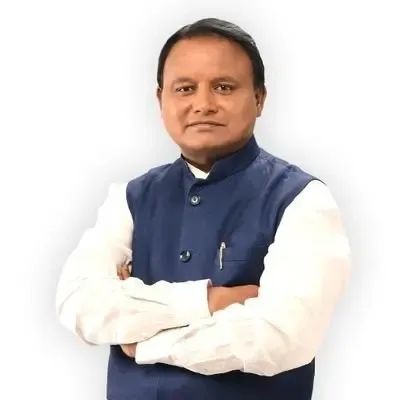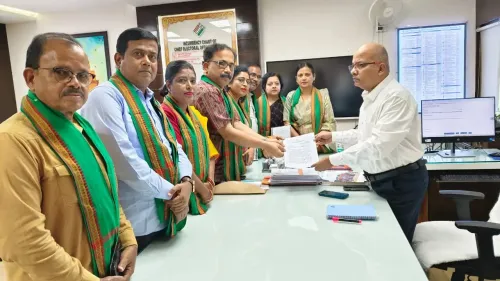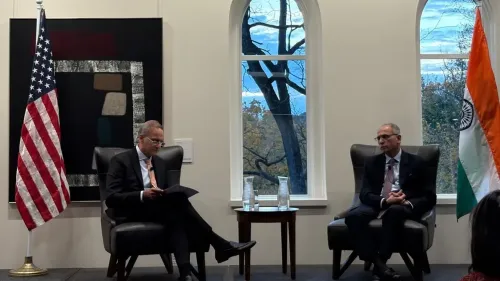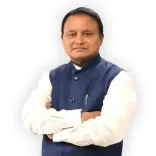How is Economic Performance Reshaping India's Electoral Politics?
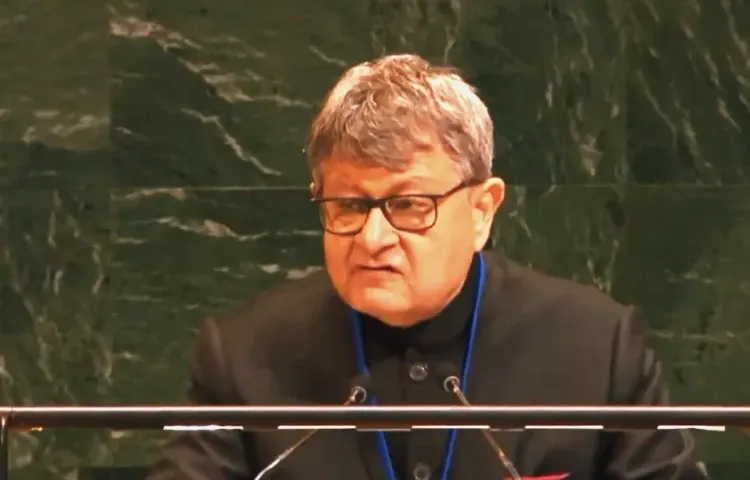
Synopsis
Key Takeaways
- Economic performance is now prioritized over identity politics in elections.
- NITI Aayog promotes Competitive Federalism for sustainable growth.
- India has lifted over 171 million people out of poverty.
- Robust growth is essential to achieve the vision for 2047.
- Utilizing the youth demographic can significantly boost productivity.
United Nations, July 31 (NationPress) In a notable transformation within India's electoral landscape, economic performance has taken precedence over identity politics in the evaluation of political leaders by voters, as stated by Suman Bery, the vice president of NITI Aayog. He remarked that India “is now very much a developmental state” and that “chief ministers across the board believe that they will be judged by inclusive growth.”
Bery highlighted that the electoral success of various chief ministers indicates a shift towards valuing economic performance over identity politics. This became evident during the annual meetings of the NITI Aayog Governing Council, which includes all chief ministers and lieutenant governors of union territories. “These are people who are learning from each other and are competing with each other,” he noted.
He added that NITI Aayog has significantly enhanced its support for states, promoting the idea of Competitive Federalism to encourage states and districts to strive towards achieving Sustainable Development Goals across various sectors such as economic, health, education, and social.
Bery participated in the recent High-level Political Forum on Sustainable Development, sharing insights into India’s progress and strategy towards fulfilling the UN's Sustainable Development Goals. He engaged with ministers and senior development officials from several Global South countries to discuss India's success stories that have lifted over 171 million people out of poverty.
At the national level, Bery noted, “The last decade has been characterised by Prime Minister (Narendra) Modi being our prime minister.” He expressed admiration for Modi's strong and consistent leadership and his focus on implementation. Bery emphasized the goal set by PM Modi for India to evolve into a developed nation by the centenary of its Independence in 2047, asserting that achieving robust growth is essential for realizing this vision.
“We have been doing well,” he stated, yet acknowledged the need to elevate the growth rate, linking it to improved inclusion. “The simplest way of thinking about how we should raise our growth rate... is to try and get more people working and to increase their productivity,” he added.
Bery highlighted the demographic advantage of young people entering the workforce in India, contrasting it with the shrinking working populations in many other nations. He asserted, “We have the so-called demographic dividend, which means that we have a bulge of new workers, and they can contribute to our increase in growth.” To capitalize on this, he emphasized the importance of implementing measures to enhance workforce participation, particularly among women, and to increase productivity.
When discussing the transition of individuals from rural and agricultural sectors to urban and industrial sectors, Bery acknowledged it as a method for enhancing productivity. However, he also pointed out that, with appropriate policies, agriculture could remain a substantial contributor to India's growth. “Let’s be clear, there’s plenty of evidence that there is no longer surplus labour in agriculture, indeed, in prosperous areas, workers are being imported from other parts of India,” he remarked.
Bery referenced insights from NITI Aayog member Ramesh Chand, an esteemed agricultural economist, who believes that both agriculture and manufacturing could significantly contribute to India's growth narrative when guided by the right policies.
(Arul Louis can be contacted at arul.l@ians.in)

